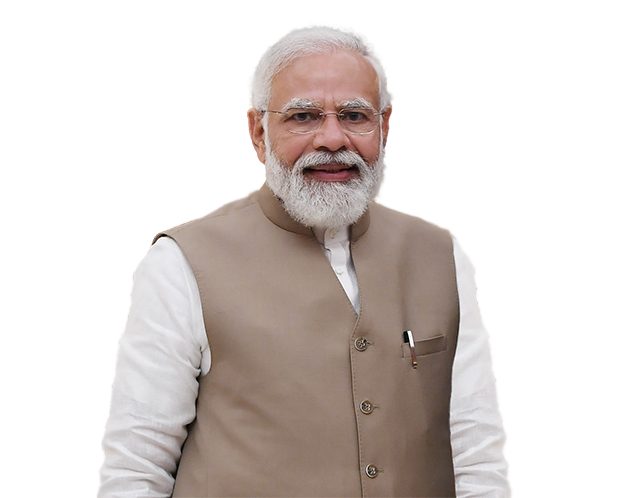
The Union Cabinet chaired by the Prime Minister Shri Narendra Modi, has approved the proposal of Ministry of Heavy Industries (MHI) for implementation of scheme titled ‘PM Electric Drive Revolution in Innovative Vehicle Enhancement (PM E-DRIVE) Scheme’ for promotion of electric mobility in the country.
The scheme has an outlay of Rs 10,900 crore over a period of two years.
The major components of the scheme are as under:
Subsidies/Demand incentives worth Rs.3,679 crore have been provided to incentivize e-2Ws, e-3Ws, e-ambulances, e-trucks and other emerging EVs. The scheme will support 24.79 lakh e-2Ws, 3.16 lakh e-3Ws, and 14,028 e-buses.
MHI is introducing e-vouchers for EV buyers to avail demand incentives under the scheme. At the time of purchase of the EV, the scheme portal will generate an Aadhaar authenticated e-Voucher for the buyer. A link to download the e- voucher shall be sent to the registered mobile number of the buyer.
This e-voucher will be signed by the buyer and submitted to the dealer to avail demand incentives under the scheme. Thereafter, the e-Voucher will also be signed by the dealer and uploaded on the PM E-DRIVE portal. The signed e-voucher shall be sent to the buyer and dealer through an SMS. The signed e-voucher will be essential for OEM to claim reimbursement of demand incentives under the scheme.
The scheme allocates Rs.500 crore for the deployment of e-ambulances. This is a new initiative of Govt of India to promote the use of e-ambulance for a comfortable patient transport. The performance and safety standards of e-ambulances will be formulated in consultation with MoHFW, MoRTH and other relevant stakeholders.
A sum of Rs.4,391 crore has been provided for procurement of 14,028 e-buses by STUs/public transport agencies. The demand aggregation will be done by CESL in the nine cities with more than 40 lakh population namely Delhi, Mumbai, Kolkata, Chennai, Ahmedabad, Surat, Bangalore, Pune and Hyderabad. Intercity and Interstate e-buses will also be supported in consultation with states.
While allocating buses to cities/states, first preference shall be given to those number of buses of cities/states, which are being procured after scrapping old STU buses, through authorised scrapping centres (RVSFs) following the MoRTH Vehicle Scrapping Scheme guidelines.
The trucks are a major contributor to air pollution. The scheme will promote the deployment of e-trucks in the country. Rs.500 crore has been allocated for incentivising e-trucks. Incentives will be given to those who have a scrapping certificate from MoRTH approved vehicles scrapping centres (RVSF).
The scheme addresses range anxiety of EV buyers by promoting in a big way the installation of electric vehicle public charging stations (EVPCS). These EVPCS shall be installed in the selected cities with high EV penetration and also on selected highways. The scheme proposes the installation of 22,100 fast chargers for e-4 Ws, 1800 fast chargers for e-buses and 48,400 fast chargers for e-2W/3Ws. The outlay for EV PCS will be Rs.2,000 crore.
In view of the growing EV ecosystem in the country, the test agencies of MHI will be modernized to deal with the new and emerging technologies to promote green mobility. The upgradation of testing agencies with an outlay of Rs.780 crore under the aegis of MHI has been approved.
The scheme promotes mass mobility by supporting means of public transportation. The primary objective of the PM E-DRIVE scheme is to expedite the adoption of EVs by providing upfront incentives for their purchase, as well as by facilitating the establishment of essential charging infrastructure for EVs. The PM E-DRIVE scheme aims to promote EVs to reduce the environmental impact of transportation and improve air quality.
The scheme promotes an efficient, competitive and resilient EV manufacturing industry thereby promoting Aatmanirbhar Bharat. This will be achieved by incorporating phased manufacturing programme (PMP) which encourages domestic manufacturing and strengthening of EV supply chain.
This initiative of Govt. of India is poised to address concerns regarding environmental pollution and fuel security as well as to make significant progress in promoting sustainable transportation solutions. This scheme along with its PMP, shall spur investment in the EV sector and associated supply chain. The scheme shall create significant employment opportunities along the value chain. There will also be employment generation through manufacturing and establishment of charging infrastructure.